My Turn: Parties only get in way of democracy
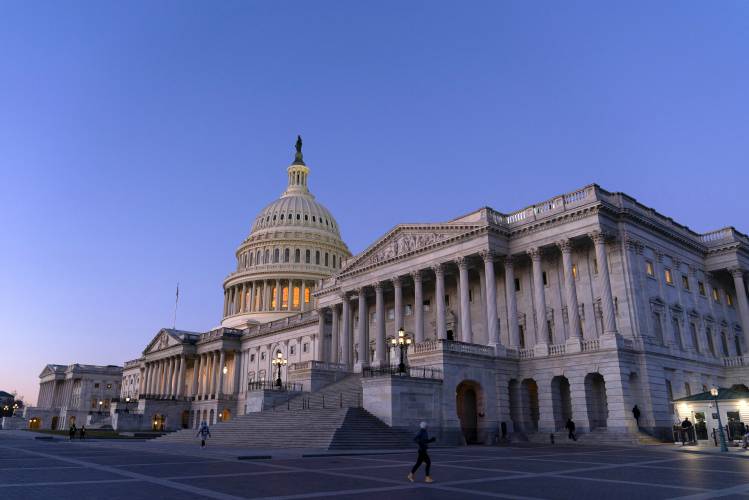
The U.S. Capitol is seen at sunrise, Wednesday, Feb. 7, 2024, in Washington. AP PHOTO/JOSE LUIS MAGANA
| Published: 03-10-2024 12:10 PM |
In the last 10 years, I have written several times about how our election system could be made democratic by eliminating the state support for political parties. Now I will address how Congress could also be made democratic by changing the system to eliminate the control political parties exercise at the expense of the members and their constituents.
Do you realize that in the matter of support for Ukraine, our state right now has no representation in the House of Representatives? Nor does any other state with representatives belonging to the Democratic Party. This is because of the system that allows one person to decide what matters may be debated and voted on.
I did not realize until I read Liz Cheney’s book “Oath and Honor” that the House is governed by rules modeled on the parliamentary system, which she approves. The party in the majority is guaranteed leadership over every process, and the members are not on an equal footing in representing their districts.
As I wrote in a letter several years ago, the British Parliament was the most democratic government in Europe and maybe the world at the time the Constitution was written; yet the writers specifically rejected that model.
Under the rules in Congress, the political party with a majority gets to pick the leaders of House and Senate. The result in the House is that the speaker is one of the most partisan, extreme members of his party (who still maintains that Donald Trump won the 2020 election).
In an election by all the members representing all the states and their constituents, no such extreme candidate would win the speakership.
Likewise, the majority leader in the Senate is chosen in secret by the political party having the majority of senators. This allowed a single man, Mitch McConnell, to refuse to allow a vote on President Obama’s nominee to the Supreme Court, because, he said, “it is onlynine months to the next election, and the voters should decide,” but he then rammed through the confirmation of Amy Coney Barrett less than a month before the 2000 election.
Too much power concentrated in single individuals — what could be more undemocratic?
Article continues after...
Yesterday's Most Read Articles
 Serious barn fire averted due to quick response in Shelburne
Serious barn fire averted due to quick response in Shelburne
 Bridge of Flowers in Shelburne Falls to open on plant sale day, May 11
Bridge of Flowers in Shelburne Falls to open on plant sale day, May 11
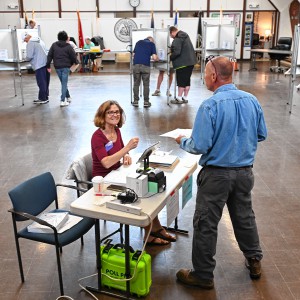 Political newcomer defeats Shores Ness for Deerfield Selectboard seat
Political newcomer defeats Shores Ness for Deerfield Selectboard seat
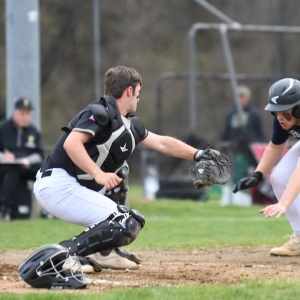 Roundup: Pioneer baseball wins Suburban League West title following 2-0 win over Hopkins
Roundup: Pioneer baseball wins Suburban League West title following 2-0 win over Hopkins
 As I See It: Between Israel and Palestine: Which side should we be on, and why?
As I See It: Between Israel and Palestine: Which side should we be on, and why?
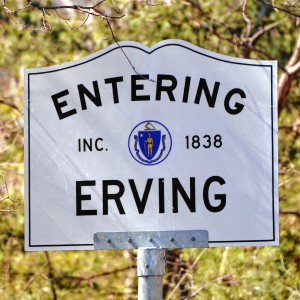 Employee pay, real estate top Erving Town Meeting warrant
Employee pay, real estate top Erving Town Meeting warrant
It is the undemocratic systems, including the Electoral College, that have caused the dysfunction of our government. As long as systems are in place that give so much power to one individual, there is no equal representation. The legislative branch is supposed to work by giving all members an equal opportunity to have their ideas fairly debated and their objections considered. I believe this is what the writers of the Constitution intended.
Our country is being torn apart by people representing extreme views. They could not have the power that they do if elections were truly democratic and the House and Senate gave every member an equal voice. As long as political parties are given preference in the systems, the people are not fairly represented.
Alaska gave us a wonderful example of a truly democratic election, with ranked-choice voting, in which their lone representative in Congress now is a Native Alaskan. I do not know the details of that election (in which Sarah Palin was running) nor who won in the first round of counting, but I had never heard of her before, and I doubt she was the first choice of the majority. With an open primary, where all the voters have an equal voice in electing the top four candidates to appear on the fall ballot, and no party is given a guarantee of having their candidate on the ballot, the candidates for office would have to campaign on real ideas to all the voters, not just a fraction of them, which would have a moderating effect on all officeholders.
We are now in another election cycle where voters in Massachusetts have been denied the right to vote on all the candidates running, but were restricted to only one party, and the person getting the second most votes overall might not make it onto the November ballot because only one candidate from each party may be in the final election.
The fact that so many people in our state are unenrolled (belonging to no political party and able to vote in either primary) indicates that these voters do not want their choices restricted. It is past time to eliminate political party control from our elections.
Judith Truesdell lives in Shelburne.

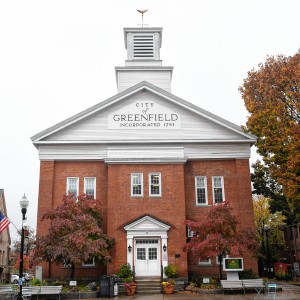 My Turn: Stop taking all equity in home seizures now
My Turn: Stop taking all equity in home seizures now Robert McGahan: Will Emmet selflessly gives time and energy to town
Robert McGahan: Will Emmet selflessly gives time and energy to town Pam Roberts: Come join Buddy Baseball's new season on May 11!
Pam Roberts: Come join Buddy Baseball's new season on May 11! Bill and Jean Gran: Heath Select Board needs Mike Smith’s broad experience
Bill and Jean Gran: Heath Select Board needs Mike Smith’s broad experience
